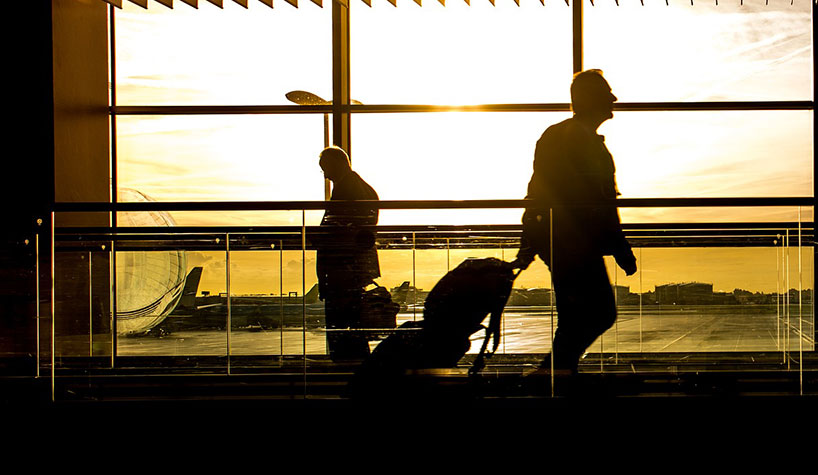LONDON—Travel marketplace Skyscanner has released a new report titled, ‘The New World of Travel.’ Bringing together extensive global flight search data and expert opinion, the report explores travel and aviation trends impacting the sector right now.
Moshe Rafiah, Skyscanner’s CEO said of the report’s publication, “Where they are able and willing, travelers are pioneering new ways to explore the world. Whether it’s shortening the timeframe in which they plan and take a trip, tackling complex risk assessments before deciding to travel, or expecting previously unseen levels of clarity to ensure confidence in their booking, the new shape of travel is emerging. As an industry we have a unique opportunity to not only help travelers navigate this new world, but to work collaboratively to ensure a swift, safe and sustainable recovery.”
Global Travel Trends
Analysis of Skyscanner’s data reveals three seismic shifts in the way travelers are searching for flights in 2020: one-way, domestic and within a month. Global searches for one-way travel peaked in March but continue to trend upward, with the share of searches in August growing by 11% compared to 2019. Last month, the share of searches for domestic travel has increased (13%) globally against a backdrop of changing travel restrictions. And amid ongoing uncertainty, travelers are looking to get away in much shorter timeframes with booking windows of under one week more popular this year than ever before (12% increase in share of searches compared to 2019).
Economics of Travel
24% of Europeans believe it is safe to travel internationally now, compared to 21% of travelers in the Americas and just 10% in Asia-Pacific. Search patterns for domestic, regional and international flights reflect this sentiment and point towards a multispeed recovery, tied to the global economy and driven by low-cost carriers. Skyscanner’s executives predict that LCCs will have the fastest route to recovery, owing to their business operations and point to point models. At the same time, the decline in business travel revenues for full-service carriers points to an uncertain future for this fare class and a need for innovation.
John Strickland, aviation expert/director of JLS consulting said, “Low-cost carriers have a cost base that allows them to offer competitive pricing which, when combined with creative ancillary revenues, means they’re able to attract customers profitably where other carriers can’t. The strongest LCCs also have the liquidity to survive for an extensive period—a year or more—even if most or all of their capacity is grounded. They are ready to jump in with new routes rapidly, wherever they see an opportunity, when other airlines cut back or fail. They have the advantage of wide geographic arenas of operation and can move capacity around opportunistically.”
New Shape of Travel
Research reveals that sustainable travel concerns are no longer top of mind for many travelers. But as destinations previously suffering from over-tourism begin to re-open, the sector has a unique opportunity to redesign old travel patterns and rearchitect the tourism industry for the benefit of local communities, the environment and travelers alike. Skyscanner is pioneering new ways to encourage more sustainable and meaningful trips, as the new shape of travel emerges.
David Goodger, managing director EMEA of Tourism Economics division of Oxford Economics said, “Over tourism was a growing concern for many destinations in the years to 2019, however, this year’s sharp fall in travel activity highlights the economic benefits that this activity supported. Demand is expected to return in coming years and should surpass 2019 levels again by 2024 in most destinations, albeit without a full return to pre-coronavirus growth trends. All stakeholders need to carefully consider the sustainable level of travel activity for their destination balancing the revenue and jobs supported by the sector against overcrowding and environmental concerns.”
Psychology of Travel
A new decision-making process has emerged amongst those willing to travel and it relates to their individual appetite to risk. Factors across five categories—health, financial, social, ethical and recreational are now top of mind. This is shaping a new demographic of travelers—male travelers are more likely to book than female (54%) and those with children are more likely to book than those without (55%) according to Skyscanner’s COVID-19 traveler sentiment data.
Travelers are reacting in real-time to the latest information about border and movement restrictions. In August when the U.K. government added Portugal to the country’s safe travel list, bookings spiked more than 2000% immediately following the announcement. 85% of travelers surveyed said they would be more likely to travel internationally if airport testing was in place. With health factors currently one of the biggest barriers to booking, restoring trust and confidence through clarity is essential for the sector’s recovery.
